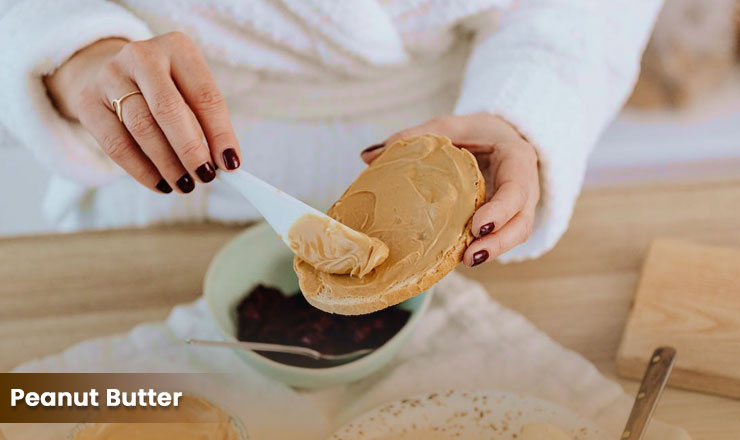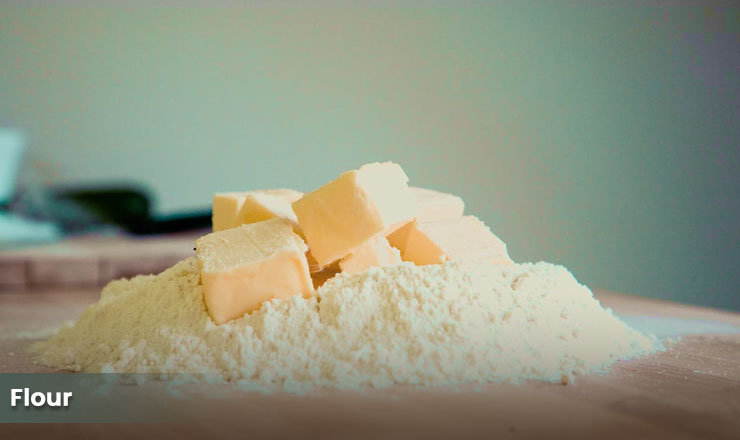Hollywood
These Foods Actually Hate the Fridge And Better Kept in Room Temperature
You probably already know that food spoiling is a natural occurrence. But did you also know that one-third of the food produced worldwide each year is lost, damaged, or wasted? 1.3 billion tonnes of food.
Exactly, are being discussed here. We may store our food in this way with the use of refrigerators. Despite how essential they are in food storage for a longer amount of time. some foods should never be stored in the refrigerator.
Consequently, here are 35 foods that you should never put in the refrigerator. Along with an explanation of why leaving them at room temperature is preferable.
Table of Contents
What temperature should the refrigerator be set to?
The refrigerator should be kept at a maximum temperature of 4°C. which should be routinely checked using a thermometer. Keep your refrigerator from being overstuffed. And provide space between items for proper air circulation and refrigerator operation.
How should food be kept in the fridge?
Some foods especially those that are raw contain bacteria that can make people ill. Thankfully, heating kills these bacteria. Since the bottom level of your refrigerator is usually the hottest. Raw meat, fish, and birds should be kept.
They are in airtight containers because growth of bacteria is slower at lower temperatures1. It’s also essential to keep cooked and ready-to-eat meals separate from raw foods.
And to clean up accidents as soon as they occur in order to stop bacteria from spreading in the refrigerator. To ensure good general health. Food should be kept bundled or in closed containers. And the refrigerator should be cleaned routinely. 2
1. Peanut Butter

Most consumers make the error of storing peanut butter in the refrigerator. When kept in the refrigerator for an extended amount of time, peanut butter, unlike jam or jelly, tends to dry up. Keep creamy, spreadable peanut butter in a dry, dark environment if you can.
Think of peanut butter as a healthy fat rather than a food high in protein if you just consume a small amount of it—less than a tablespoon. Regular peanut butter eating may help lower the chance of developing diabetes.
Along with important vitamins and minerals like magnesium, potassium, and zinc, peanut butter offers a healthy quantity of protein.
The following nutrients, minerals, and vitamins are especially significant in each 2-tablespoon (tbsp) portion of smooth peanut butter: Protein. Lower temperatures may help to maintain the nut’s natural oils, but they might also dull the flavor of the nut.
It is best to keep nuts in a sealed container in the closet, away from extreme heat, if you want to use them within the next several weeks. However, you should freeze them if you need them to remain fresh for up to six months rather than just a month.
2. Olive Oil

You must make sure that very beneficial olive oil is kept in a container that is properly sealed and kept in a dark, cool location. Keep in mind that you shouldn’t keep it in the refrigerator and that olive oil loses some of its protective advantages after 5 to 6 months on the shelf, according to a study.
Oils can turn hazy and sticky when kept in the refrigerator. They retain their color and consistency when stored at room temperature.
Olive oil does, however, have the propensity to degrade quickly when in direct sunlight or high temperatures. Better than keeping it out in the open is to keep it in a dark, cool place like the kitchen cabinet.
Depending on the kind of olive you use, it should have fruity notes that come from black or green olives. Good olive oil should taste fruity, rich, and light on the palate with no oily aftertaste. It should also taste fresh and have a deep flavor.
Olive oil is categorized in part based on the amount of free oleic acid, which is used to assess acidity. The maximum amount of free oleic acid in extra virgin olive oil is 1%, virgin olive oil is 2%, and regular olive oil is 3.3%.
3. Honey

Even though it is known as the only food that doesn’t spoil, honey can crystallize if you put it in the refrigerator. It won’t crystallise, thus it is preferred to store it in a cool, dry environment for storage. It is readily capable of lasting an endless amount of time at room temperature in good condition.
Keep honey out of the fridge unless you really want to struggle with it. Low temperatures cause it to crystallize and solidify, and there is little actual benefit.
Improvements in heart health, wound healing, and blood protective effects have all been linked to the consumption of honey. The high sugar and sugar content, however, makes excessive consumption potentially harmful.
Because of this, it’s recommended to use honey in place of other sugars and only consume a small amount of it at a time. Typically, doctors advise patients to consume honey first thing in the morning on an empty stomach since it gives them an immediate burst of energy that lasts all day.
Additionally, a teaspoon of honey before bedtime promotes relaxation of the mind and body as well as a restful night’s sleep.
4. Coffee

To guarantee that coffee maintains its freshness and flavour, it is strongly advised to store it in an airtight container. A dry, chilly environment keeps coffee fresh. Coffee can only taste worse after being placed in the refrigerator.
Even coffee professionals strongly advise customers to keep their coffee at room temperature and out of the sun, heat, and moisture. Avoid the error of keeping coffee beans in the refrigerator if you have some.
However, a decent cup of coffee shouldn’t be overly bitter or acidic. Even without the addition of any cream or sweetness, it ought to taste good. This can be influenced by a number of things, including its origin, how it’s produced,
5. Chocolate

Most people keep their favorite chocolate in the refrigerator to keep it from melting. But prolonged exposure to extreme cold can change the flavor of chocolate.
After being removed from the refrigerator, chocolate is exposed to warmer air, which results in a process known as “sugar bloom.” The chocolate’s flavor is altered as a result of the formation of a grainy coating.
This beloved sweet spread tastes great on toast, but it is much more challenging to spread when it is chilled. Making sure the lid is tight, place the jar in the pantry. The chocolate flavor is also much more noticeable when the jar is stored at room temperature.
6. Spices

Spices can be kept ground and at room temperature for many years. The nutritional benefits and flavor of spices are both impacted by refrigeration, in addition to their nutritional worth.
Spices that have been kept at room temperature for more than a year should be smelled to see if their flavor has been diminished.
It is usually advisable to avoid using them if they have a weak odor because they have lost their power. Nevertheless, it is advised against keeping spices in the refrigerator.
7. Flour

Although flour doesn’t get in damaged when it is stored in the fridge, it isn’t necessary to keep it refrigerated. Simply store it in a tight container and it will last a good long time.
Additionally, keeping it in the fridge might take up a lot of room. Save some space in your refrigerator by storing it at ambient temperature.
Conclusion
In this article, we are talking about how food should not be kept in the refrigerator but should be kept at room temperature and what are the things that should be kept at room temperature.
Have been done, which will be effective in knowing what things should be kept in the refrigerator. I hope this article will be very useful for you.






